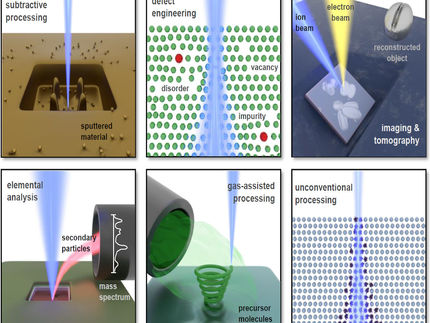DSM and Roquette to start bio-based succinic acid joint venture
Royal DSM N.V. and Roquette Frères announced that they have signed a joint venture agreement for the production, commercialization and market development of bio-based succinic acid, subject to regulatory approvals and notifications.
The formation of the joint venture is a new step following the successful cooperation between DSM and Roquette pursuant to a joint development agreement ("JDA"). Since early 2008 the two companies have been working together to develop the best and most sustainable fermentative technology to produce bio-based succinic acid. The first testing volumes of this renewable and versatile chemical building block - used in the manufacture of polymers, resins and many other products - have already been produced in a demonstration plant in Lestrem (France) that was built in 2009.
The positive results from this cooperation have led to the establishment of the joint venture. DSM and Roquette will each have a 50% stake in the new entity, Reverdia V.o.f., which will be headquartered in the Netherlands.
Volkert Claassen, Vice President DSM White Biotechnology, commented: "With the adverse consequences of the world's dependency on fossil fuels becoming increasingly apparent, fundamentally new approaches are necessary, not only for energy but also for materials that are mainly based on petroleum as a raw material. One day we need alternative sources anyway, but soon it will become economically attractive due to increasing oil prices and - on top of this - alternatives are more environmentally friendly. Today we are showing together with Roquette that we - as a Life Sciences and Materials Sciences company - have the capabilities and the commitment to develop and commercialize an important chemical building block as yet another step towards a bio-based economy."
Guy Talbourdet, CEO of Roquette, said: "Bio-based chemistry will become important in the future as fossil feedstocks will become scarce and more expensive. We are proud that our alliance with DSM has succeeded in developing the most sustainable bio-based succinic acid technology in such a short period of time and we are looking forward to commercializing and scaling up the production in the near future."
DSM and Roquette believe that fermentation based succinic acid will be able to replace existing fossil based succinic acid as well as open new applications, while at the same time delivering a better environmental performance. This innovative technology to produce bio-based succinic acid from starch is unique in the world.
This new production route delivers a reduction in greenhouse gas emissions, as it sequesters carbon dioxide (CO2), and the proprietary process does not produce any salts as waste. Bio-based succinic acid will thus enable customers to produce products with substantially lower environmental footprints.
Topics
Organizations
Other news from the department business & finance

Get the life science industry in your inbox
By submitting this form you agree that LUMITOS AG will send you the newsletter(s) selected above by email. Your data will not be passed on to third parties. Your data will be stored and processed in accordance with our data protection regulations. LUMITOS may contact you by email for the purpose of advertising or market and opinion surveys. You can revoke your consent at any time without giving reasons to LUMITOS AG, Ernst-Augustin-Str. 2, 12489 Berlin, Germany or by e-mail at revoke@lumitos.com with effect for the future. In addition, each email contains a link to unsubscribe from the corresponding newsletter.



















































